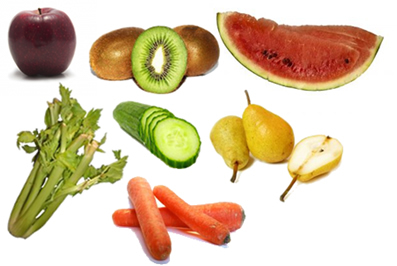It is from the way in which the child's desire for food is satisfied that he establishes his first relationships with life outside the womb. The importance of this moment made countless authors look into it.
Food and affectivity
Meeting nutrient needs is not the only task of infant feeding. In the early stages of development, it is through the mouth that the child knows the world. Through feeding, the child knows flavors, textures and sensations, but also knows emotions and feelings linked to each moment of feeding. When the child is hungry, he is overcome with strong discomfort. When being fed, the child feels not only the end of hunger, but the pleasure of ending the discomfort that hunger caused him.
What are the consequences of problematic breastfeeding?
Many clinical reports attribute later problems such as eating disorders to breastfeeding failures. But not only that. It is interesting to note that the same articles that propose the importance of nutrition in the early stages also deal with problems such as sociability and social commitment. This is significant in showing the emotional importance of infant feeding, that is, not only as a nutritional issue, but as a relationship with others.
A child who is not breastfed or whose mother has symptoms of rejection, postpartum depression, among other problems, can establish problematic ways of relating to the world. She may understand, for example, that her feeding has been a burden on the mother and that her pleasure therefore implies the mother's displeasure. In other cases, the mother's apathy during breastfeeding moments can decouple pleasure from the relationship with the other. In such cases, many relationship problems can be generated in the child's future.
Food and Oral Phase
For Freud, for example, the initial moments of the relationship with the world are so important that he called the initial phase of development the Oral Phase. As we said, this moment defines the phase in which the child relates to the world through the mouth. This is because, at this time, most of the child's needs are concentrated in the upper portion of the digestive tract. The mouth therefore becomes the child's first place of concentration of libido. It is through her mouth that she sucks, cries, smiles and bites.
suck and bite
The Oral Phase is divided into two stages: the first of suction and cannibalism. For some authors, the child, at first, establishes a relationship of absorption of stimuli with the world. At that moment, the pleasure is ensured precisely by sucking.
In a second moment, the child starts to bite, to grind before incorporating. Here the child is developing negative feelings and is dealing with dissatisfaction or the delay in the link between displeasure and satisfaction. This happens when the time between hunger and satisfaction increases.
The oral phase lasts for a few years. It is common, for example, in nurseries or day care centers for children to bite each other. This is because this is still the primary form of relationship of these children with each other, through the mouth. Biting the other often implies getting in touch with the other's displeasure. The crying, the screaming and the fear of the other show the child that there is another that she cannot incorporate completely through the oral route and then realizes that he needs other ways to relate to the world.
infant feeding and advertising
It is important to highlight that, as well as family relationships, there is affective interference in habits of children, other institutions also influence the relationship that the child establishes with the foods. Culture, for example, defines the menu for all of us, from our earliest years of life.
Over the years, we've seen countless children appear with eating problems. They refuse to eat certain foods or establish proper eating routines. This is related to how the relationship with food was initially established, but it is not just that. Countless other educators act on the child: friends, the media, school, religion, among others.
These days, children have been bombarded by publicity around the food issue. Among the most dangerous strategies is the habit of relating infant feeding and having fun. The problem is that, most of the time, fun is not combined with healthy products. It is important that parents are aware of the influence of advertising on their children's diet, so that they are not “diseducated”. Paying attention to the nutritional education of their children is to ensure that the relationship of food and pleasure built in first months, due to the relationship between mother and child, do not lose space to the violent interference of the media in habits humans.
How to find out more?
Some films and documentaries provide quality discussions on the issue of infant nutrition education. Among them, the movie “Maus Habits” (Malos Habits, Mexico, 2007), presents in an extremely interesting way the relationship between food and emotional aspects. The documentary “Much Beyond Weight”, released by Maria Farinha Filmes, in partnership with the Instituto Alana, illustrates the relationship that children establish with food based on the influence of the media.
Juliana Spinelli Ferrari
Brazil School Collaborator
Graduated in Psychology from UNESP - Universidade Estadual Paulista
Brief psychotherapy course by FUNDEB - Foundation for the Development of Bauru
Master's Student in School Psychology and Human Development at USP - University of São Paulo
Source: Brazil School - https://brasilescola.uol.com.br/psicologia/apectos-afetivos-alimentacao-infantil.htm

